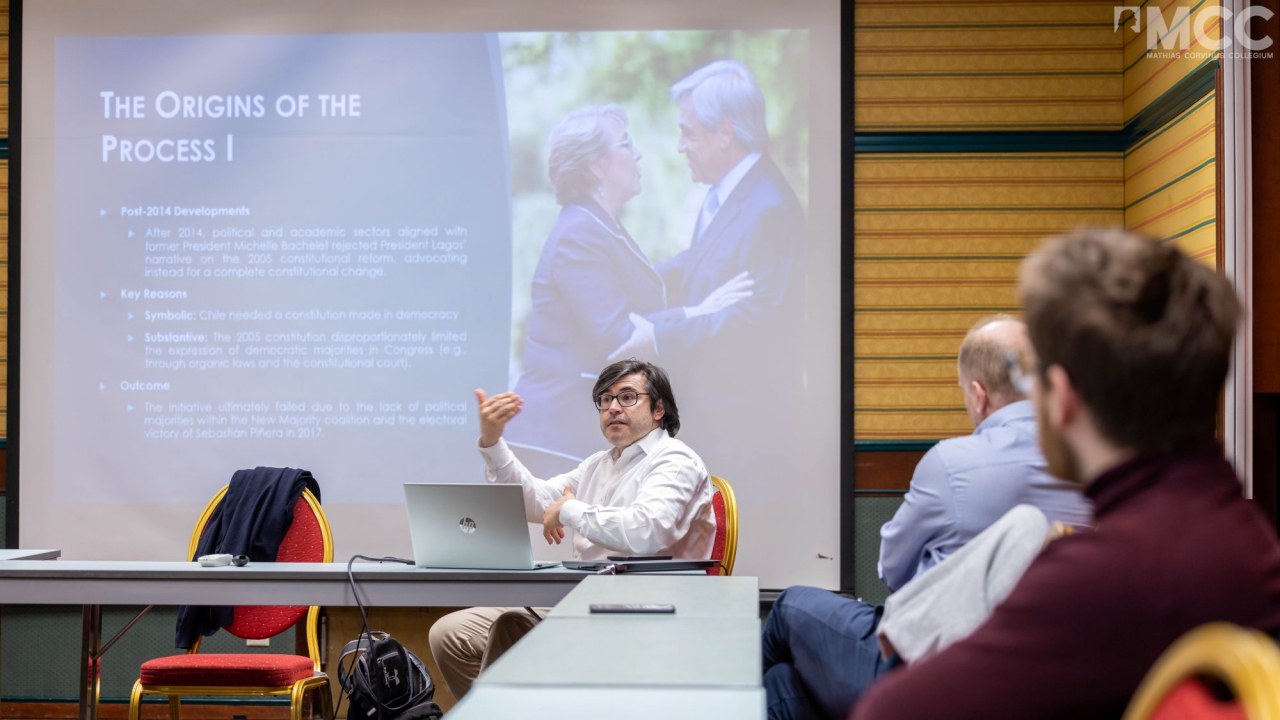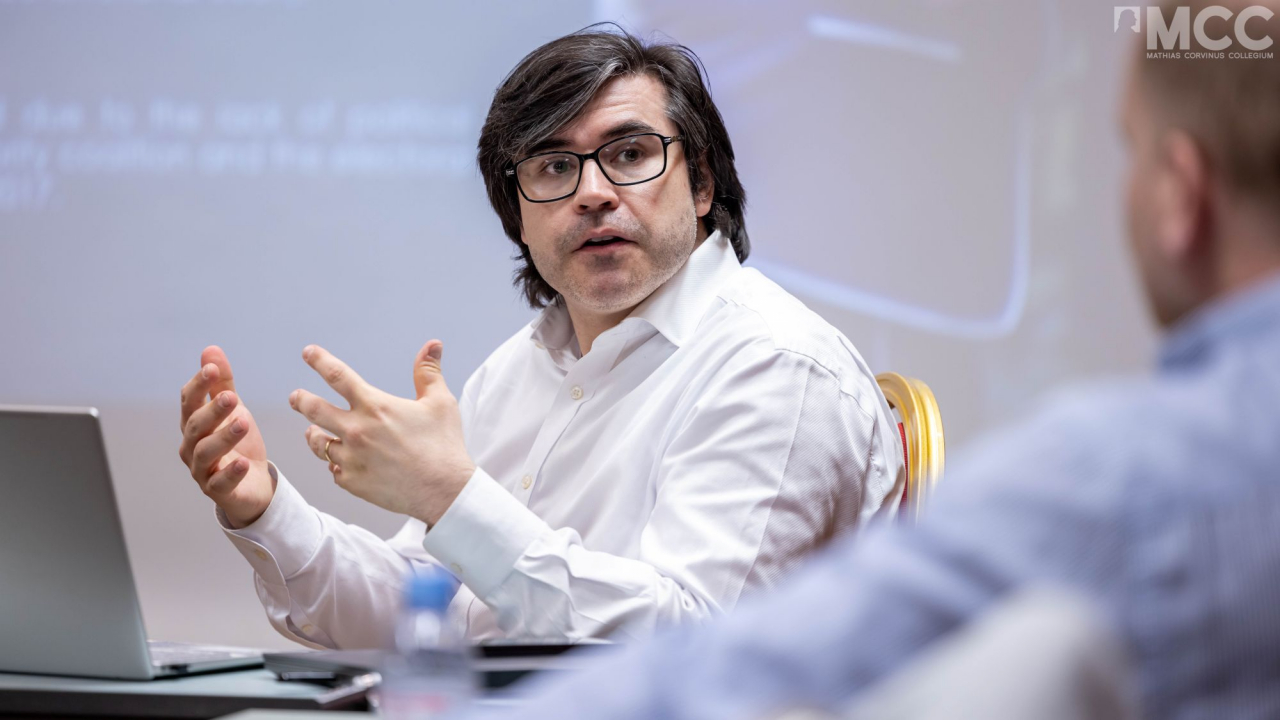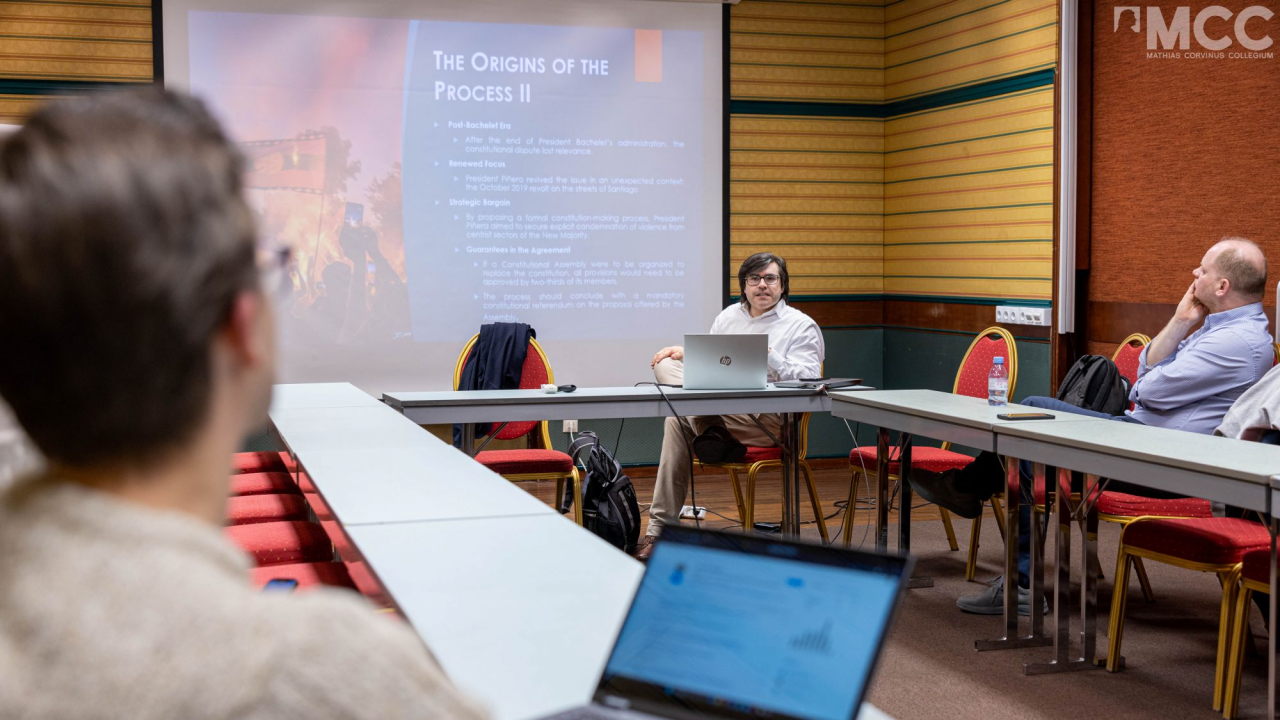Reading time: 2 minutes
Gonzalo Candia, professor of constitutional law at the Catholic University of Chile and our visiting fellow at the MCC Center for Constitutional Politics, held a series of lectures as part of our research seminar series on the recent Chilean constitution-making process. In his lectures, Prof. Candia provided a detailed analysis of the failed attempt to replace Chile’s 1980 constitution, which was enacted during the Pinochet regime. His insights focused on the reasons behind the rejection of the proposed draft constitution in the national referendum.
In his talk he argued that the failure of the constitutional process could be traced to a number of critical factors. He emphasized that the proposed constitution was perceived by many as too radical, which contributed to division and uncertainty within the country. The confrontational nature of many Convention members and their inability to reach meaningful agreements also deepened public dissatisfaction. He noted that procedural issues, such as poor time management and a lack of substantial public input, further hindered the Convention’s efforts.
Drawing from his extensive analysis, Candia reflected on Chile’s traditional approach to constitution-making, which typically involved replacing a constitution during times of political crisis, followed by reforms in Congress to ensure legitimacy. The 2019 constitution-making process deviated from Chile’s traditional approach, which emphasized reforming constitutions rather than replacing them. Candia highlighted the lack of political consensus and citizens’ growing mistrust toward key political actors as contributing factors to the failure of this initiative.
Despite the shortcomings of the 1980 constitution, Candia suggested that it continues to provide a degree of political stability. His reflections raised critical questions about the origins of legal authority, the importance of popular consent, and the balance between idealism and practicality in constitutional design. Following the presentation, students and faculty engaged Candia in a lively discussion about the challenges of constitution-making, both in Chile and in other global contexts.




